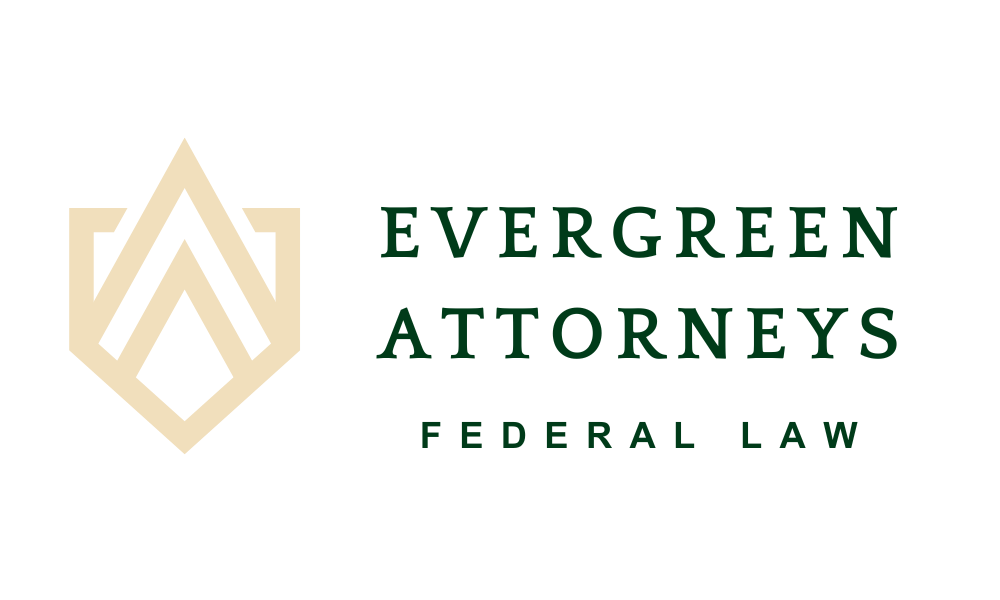Share
Share

Plano meeting location – by appointment only: We do NOT accept mail or service at this location.
5465 Legacy Drive Suite 650, Plano, Texas 75024
Evergreen Attorneys has proud Dallas federal appeals lawyers with years of experience and a proven track record in the federal courts of appeals. If you or a loved one are seeking assistance with a federal criminal appeal, contact us today for a free consultation. Read more below about the importance of an appeal and the appellate process.
What is a Direct Appeal and Why is it so Important?
With few exceptions, a federal criminal appeal occurs after a person is convicted and sentenced in federal district court. An appeal to the courts of appeals is a request for a higher court to review claims of error or constitutional violations that occurred in the court below.
Why is a direct appeal so important? Simply put, courts make mistakes and courts of appeals have significant jurisdiction and discretion to correct mistakes made in the district court. Appellate courts can provide remedies including reversing district court decisions, vacating convictions or sentences, or ordering a new trial or resentencing. The relief granted by the court of appeals depends on the nature of the claim and seriousness of the error.
Another important factor for direct appeals is preserving claims of error. If a claim is not raised before the district court or on appeal, it is typically considered procedurally defaulted–meaning it cannot be raised in a later proceeding without first overcoming some significant hurdles.
A direct appeal is often a defendant’s best chance at getting a conviction or sentence overturned. It is extremely important to have experienced federal appellate attorneys knowledgeable in the law and procedure for your direct appeal.
What is the Appeal Process?
All appellate courts follow the Federal Rules of Appellate Procedure. Each circuit court has its own set of local rules in addition to the Federal Rules. This creates some variations in how the appeal process proceeds depending on the location of the court. However, criminal direct appeals typically all follow the same appellate process:
1. Filing of a Notice of Appeal
The first step in any direct appeal is the filing of a notice of appeal. In criminal cases, a notice of appeal must be filed within 14 days of the day written judgment was entered by the district court. The notice of appeal must contain certain information, such as the order being appealed and name of the court to which the appeal is taken.
2. Jurisdiction is Transferred to the Court of Appeals
Once a notice of appeal is filed, jurisdiction over the criminal case is transferred to the court of appeals. This means that, except in few limited circumstances, the district court loses jurisdiction over the criminal case until the direct appeal is concluded.
3. The Record on Appeal
Once the appeal has been transferred to the federal court of appeals, the court requires a “record on appeal.” The appellant (appealing party) is required to order any transcripts necessary for resolution of the appeal. Failure to file a timely transcript order form may be grounds for dismissal of the appeal.
This is where the local rules begin to differ from circuit to circuit. Some courts of appeals such as the Fifth Circuit require the district court to compile a complete “Electronic Record on Appeal” and transmit that to the court of appeals. Others, like the Seventh Circuit, require the appellant to file a “Required Short Appendix” attached to the opening brief. It is important to be familiar with both the Federal Rules of Appellate Procedure and the individual court’s local rules to ensure an appeal is properly taken.
4. The Briefing Schedule
Once the transcripts have been ordered and the record on appeal completed, the court of appeals will typically issue a briefing schedule. Again, the time and manner of a briefing schedule is different for each circuit.
Generally, the court of appeals will set deadlines for when the parties’ briefs are due. There are exceptions, though. For example, the Second Circuit requires the extra step of the appellant setting its own due date in writing for the court’s approval.
5. Filing Briefs
The appeal process requires each party to file briefs setting forth their arguments and supporting authority. Every circuit has slight variations on what contents are required for a sufficient brief.
The appellant, or party appealing an order, files their opening brief. The appellee then files a brief in response. The appellant then may file a reply brief, but it is usually not required.
6. Panel Assignment
Federal criminal appeals are decided by a three-judge panel on the court of appeals. These panels are usually not assigned until after briefing has concluded.
7. Oral Argument
If the panel determines that additional argument beyond the briefing is necessary to resolve the appeal, it will schedule a time for the parties to present oral argument. During oral argument, the attorneys for each party will have the opportunity to present their case before the three-judge panel.
During oral argument, the panel usually asks a lot of questions. How an attorney handles oral argument can make or break an appeal. Knowledge of the law and issues, as well as the ability to think quickly on their feet, is a necessity for good appellate representation.
8. The Decision
The Court of Appeals will issue a decision on the appeal either based on the briefs or after oral argument if it is ordered. The appellate court will decide whether to affirm the district court’s judgment, remand to the district court for further proceedings, or vacate or reverse the district court’s ruling.
In some cases, the panel will issue what is known as a published opinion. These opinions create binding case law on all other cases in that circuit.
9. Petition for Rehearing
After the court issues its judgment, either party can move for panel rehearing or rehearing en banc. If panel rehearing is granted, the original three-judge panel will reconsider the appeal based on arguments made in the petition for rehearing.
En banc rehearing means that every judge sitting in that circuit will participate in rehearing instead of just the original three-judge panel. Rehearing en banc is usually reserved for cases that raise substantial issues. A petition for rehearing en banc must contain a statement that:
(1) the panel decision conflicts with a decision of the circuit court;
(2) the panel decision conflicts with a decision of the U.S. Supreme Court;
(3) the panel decision conflicts with a published decision of another circuit court; or
(4) the proceeding involves questions of exceptional importance.
10. The Supreme Court
After judgment is entered by the court of appeals, either party may choose to seek further review by the United States Supreme Court by filing a petition for writ of certiorari. If the Supreme Court grants certiorari, further briefing and argument will be held by the Supreme Court.
A decision by the U.S. Supreme Court is final and controlling. If the Court denies certiorari or decides the case on the merits, that is the end of the appellate process.
Contact Dallas Federal Appeals Lawyers Today
A direct appeal is one of the most powerful tools in a federal defendant’s arsenal. The federal appeals lawyers at Evergreen Attorneys have experience with courts of appeals across the country and the United States Supreme Court.
If you are or a loved one are seeking assistance with a federal criminal appeal, contact us today at (303) 948-1489 or [email protected] for a free consultation.
David Boyer
It was David’s passion for the law and helping others that led him to becoming an attorney. He particularly enjoys appellate and post-conviction work.
David is proud to offer representation nationwide from his office in Plano, Texas.
STAY IN THE LOOP
Subscribe to our free newsletter.
By John Kruzel October 20, 202511:35 [...]
The OIG’s Audit of the [...]










